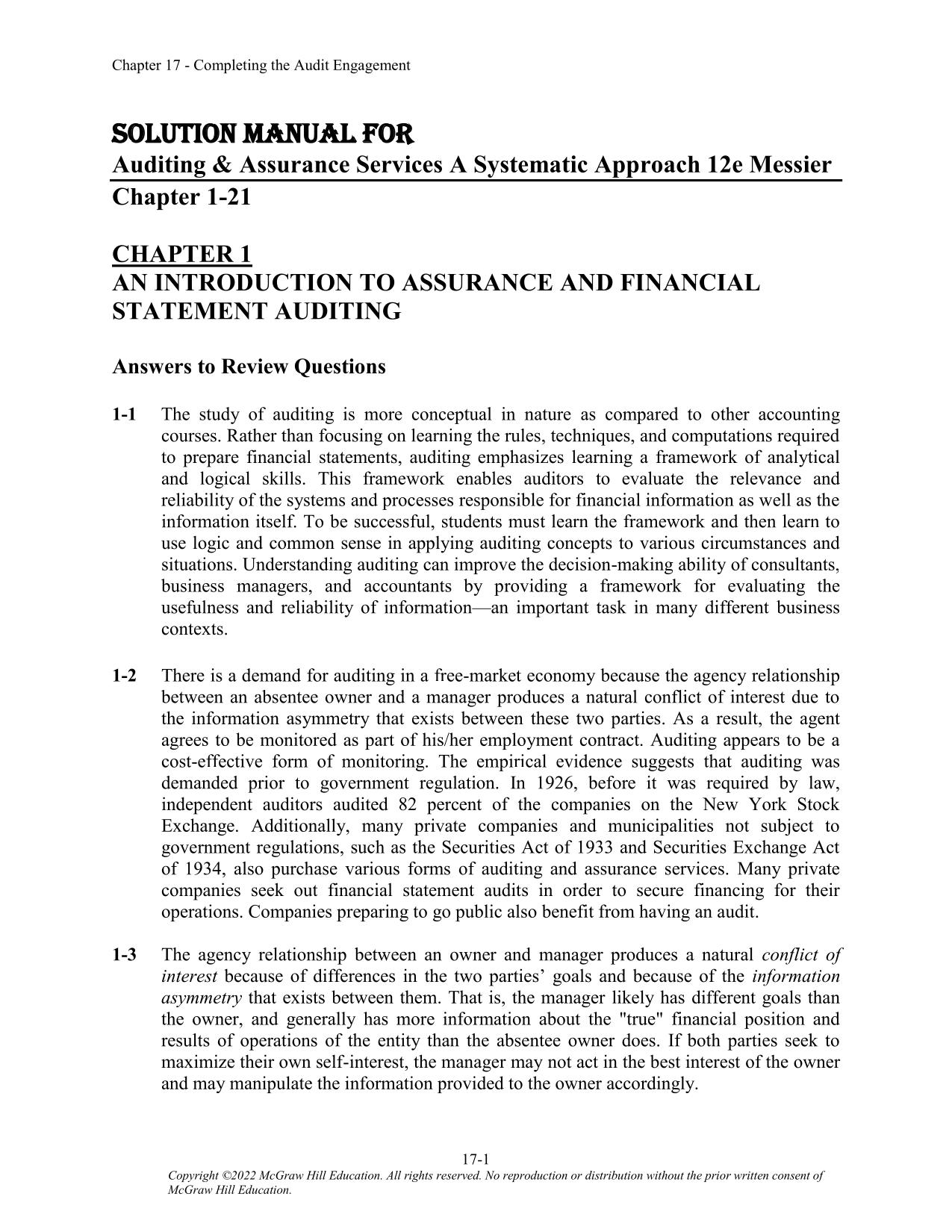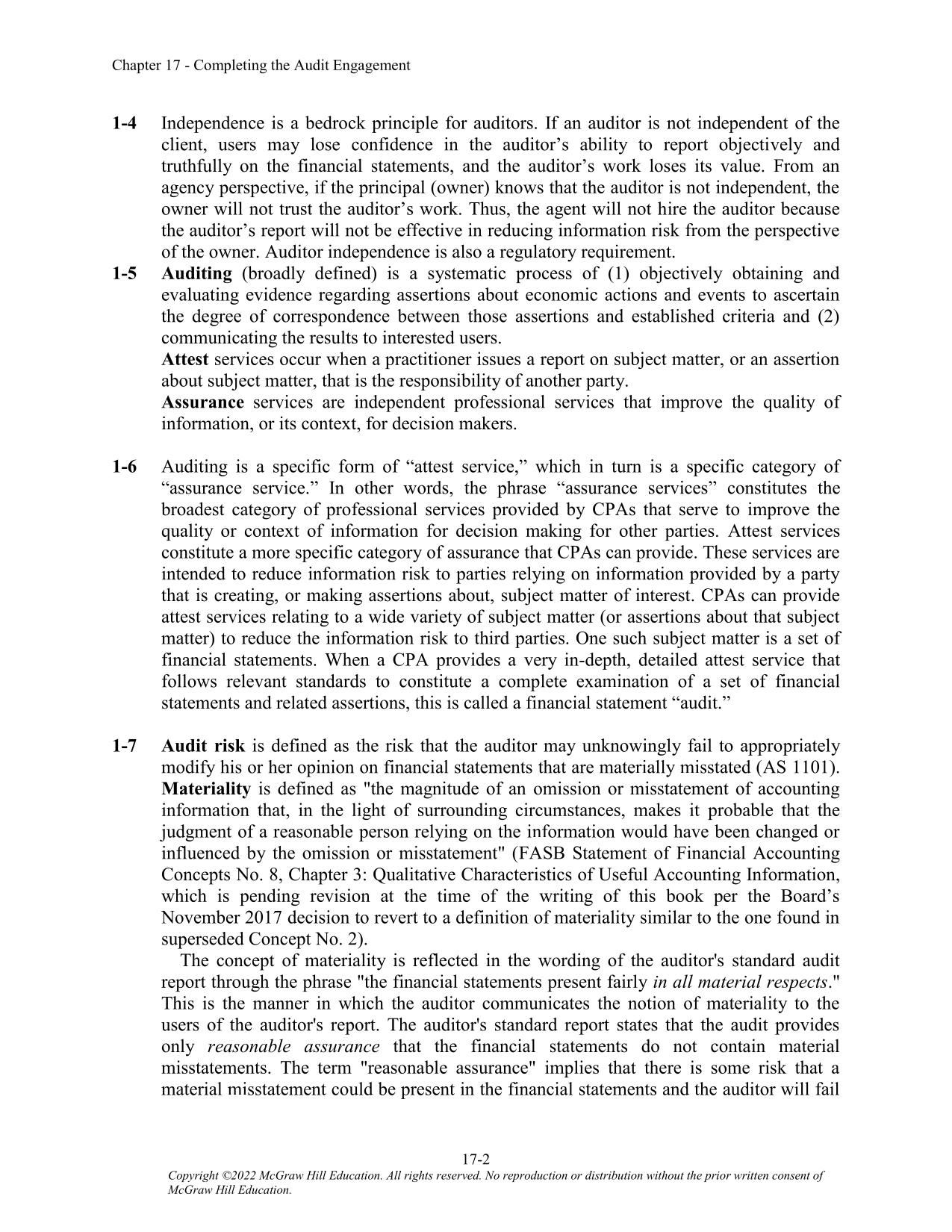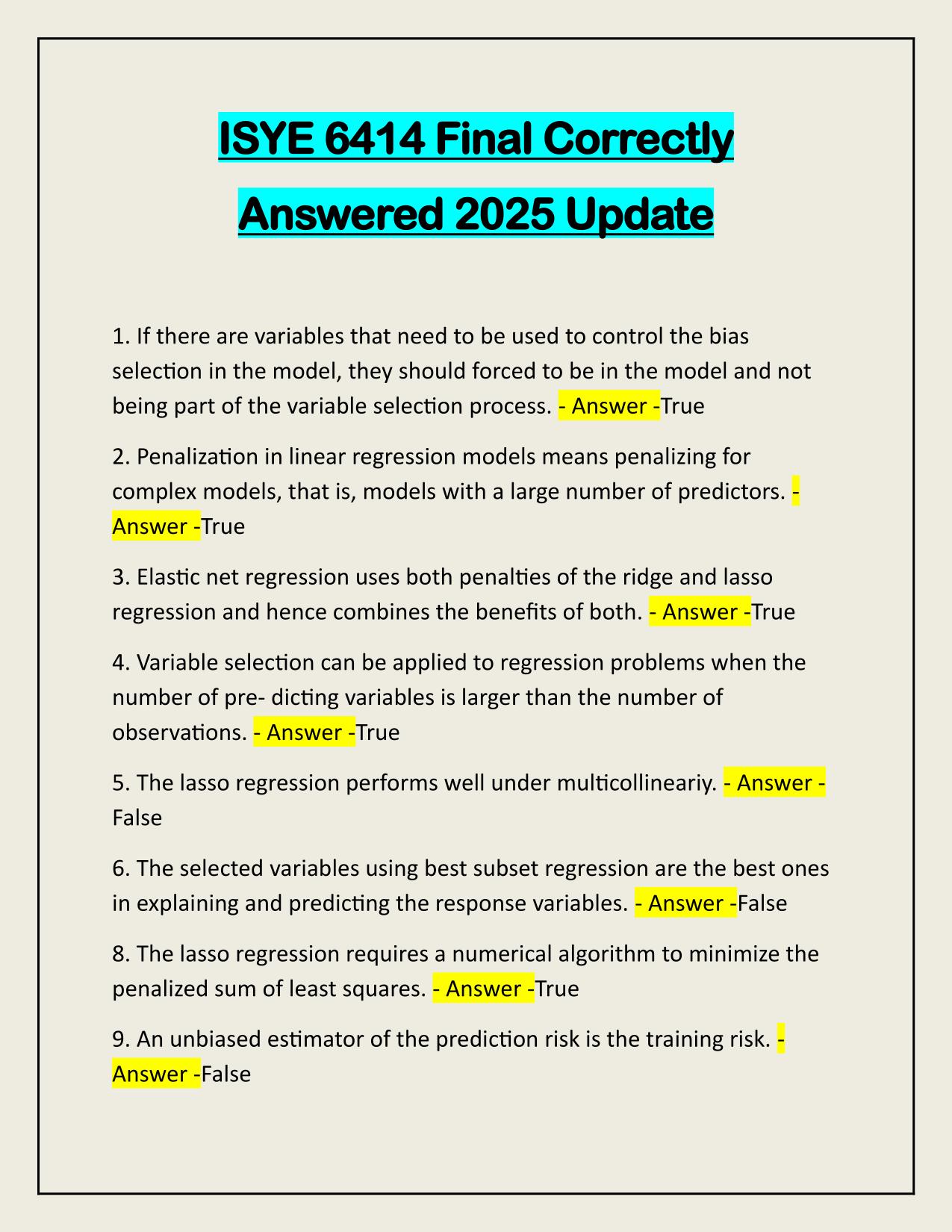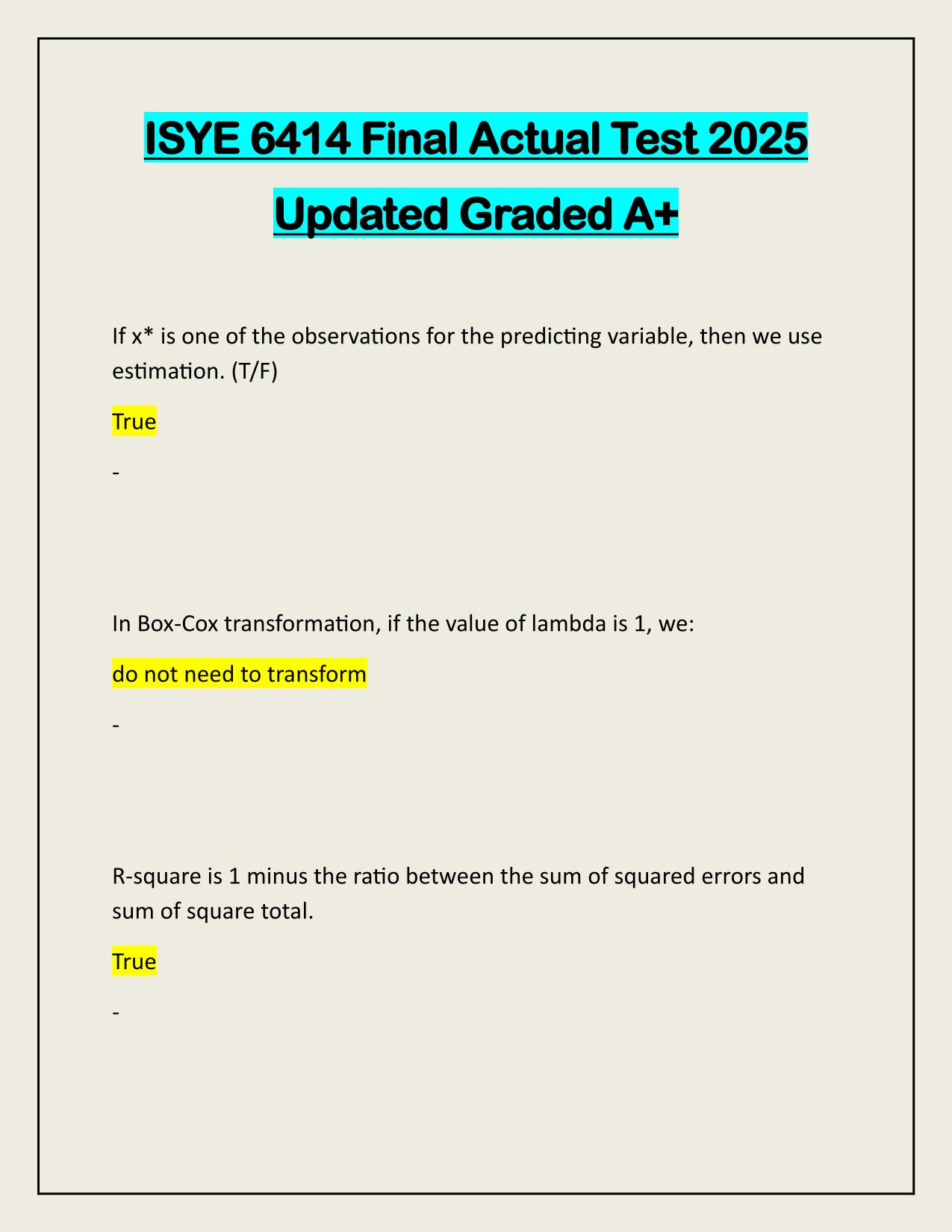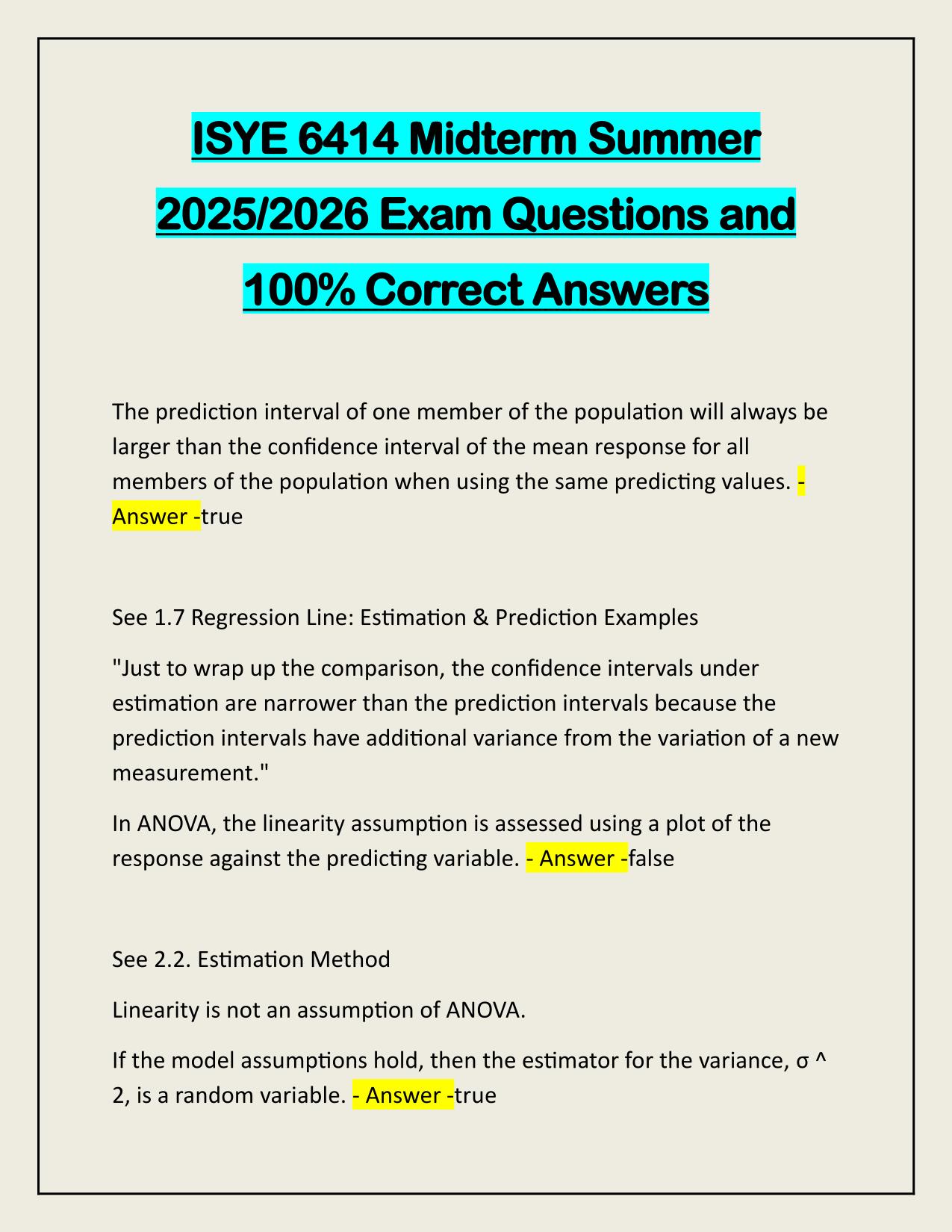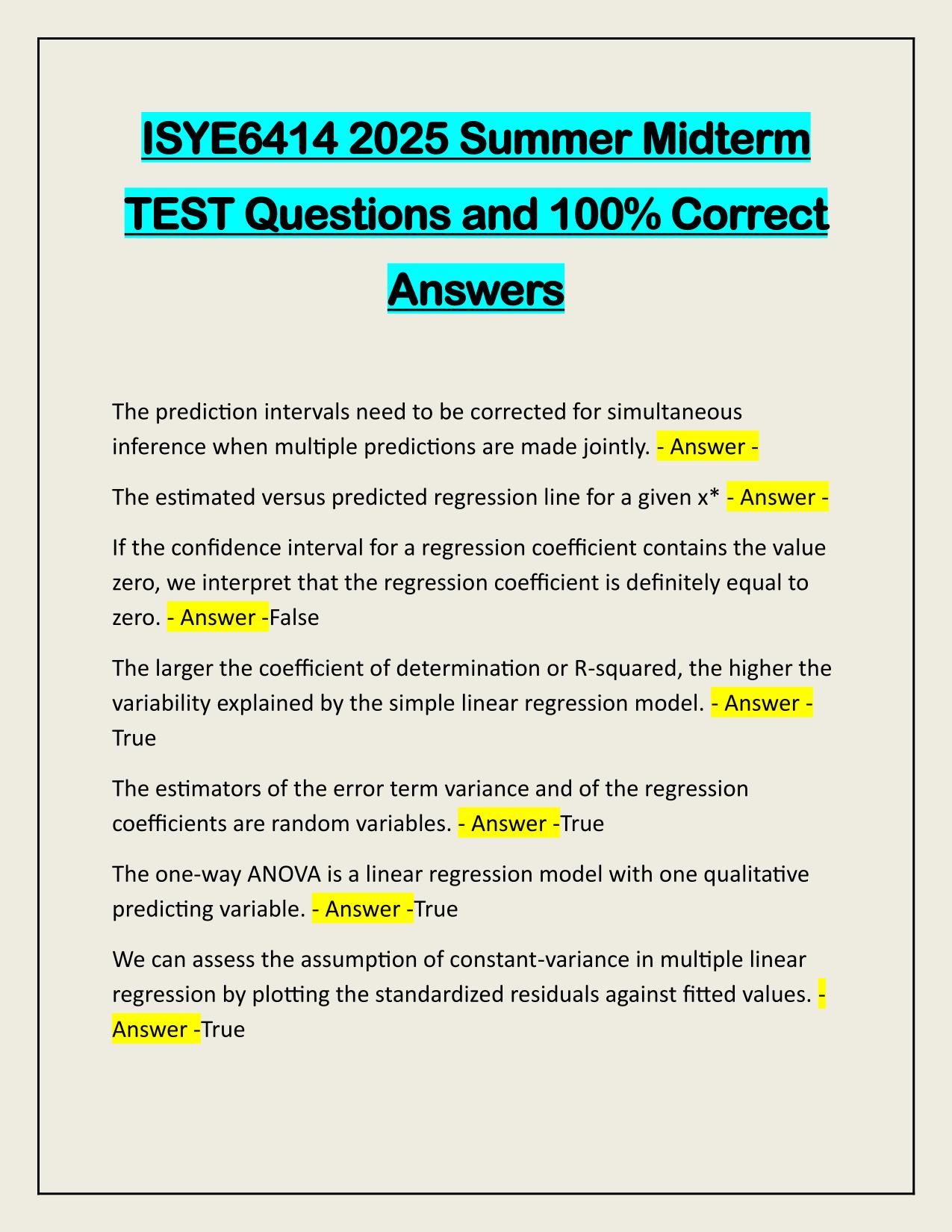Solution Manual For Auditing and Assurance Services A Systematic Approach 12th Edition Messier ISBN 9781264100675
Course:
Auditing
Institution:
Auditing
Solution Manual For Auditing and Assurance Services A Systematic Approach 12th Edition Messier ISBN 9781264100675
After purchase, you get:
✅ Instant PDF Download
✅ Verified answer explanations
✅ Refund if not Satisfied
✅ Prepared for 2025/2026 test cycle
Document Information
| Uploaded on: | April 20, 2025 |
| Last updated: | May 12, 2025 |
| Number of pages: | 231 |
| Written in: | 2025/2026 |
| Type: | Exam (elaborations) |
| Contains: | Questions & Answers |
| Tags: | Solution Manual For Auditing and Assurance Services A Systematic Approach 12th Edition Messier ISBN 9781264100675 |
Seller Information

AdelineJean
User Reviews (0)
Exam (Elaborations)
$14.50
Add to Cart
100% satisfaction guarantee
Refund Upon dissatisfaction
Immediately available after purchase
Available in Both online and PDF
$14.50
| 0 sold
Discover More resources
Content Preview
Chapter 17 - Completing the Audit Engagement Solution Manual For Auditing & Assurance Services A Systematic Approach 12e Messier Chapter 1-21 CHAPTER 1 AN INTRODUCTION TO ASSURANCE AND FINANCIAL STATEMENT AUDITING Answers to Review Questions 1-1 The study of auditing is more conceptual in nature as compared to other accounting courses. Rather than focusing on learning the rules, techniques, and computations required to prepare financial statements, auditing emphasizes learning a framework of analytical and logical skills. This framework enables auditors to evaluate the relevance and reliability of the systems and processes responsible for financial information as well as the information itself. To be successful, students must learn the framework and then learn to use logic and common sense in applying auditing concepts to various circumstances and situations. Understanding auditing can improve the decision-making ability of consultants, business managers, and accountants by providing a framework for evaluating the usefulness and reliability of information—an important task in many different business contexts. 1-2 There is a demand for auditing in a free-market economy because the agency relationship between an absentee owner and a manager produces a natural conflict of interest due to the information asymmetry that exists between these two parties. As a result, the agent agrees to be monitored as part of his/her employment contract. Auditing appears to be a cost-effective form of monitoring. The empirical evidence suggests that auditing was demanded prior to government regulation. In 1926, before it was required by law, independent auditors audited 82 percent of the companies on the New York Stock Exchange. Additionally, many private companies and municipalities not subject to government regulations, such as the Securities Act of 1933 and Securities Exchange Act of 1934, also purchase various forms of auditing and assurance services. Many private companies seek out financial statement audits in order to secure financing for their operations. Companies preparing to go public also benefit from having an audit. 1-3 The agency relationship between an owner and manager produces a natural conflict of interest because of differences in the two parties’ goals and because of the information asymmetry that exists between them. That is, the manager likely has different goals than the owner, and generally has more information about the "true" financial position and results of operations of the entity than the absentee owner does. If both parties seek to maximize their own self-interest, the manager may not act in the best interest of the owner and may manipulate the information provided to the owner accordingly. 17-1 Copyright ©2022 McGraw Hill Education. All rights reserved. No reproduction or distribution without the prior written consent of McGraw Hill Education.
